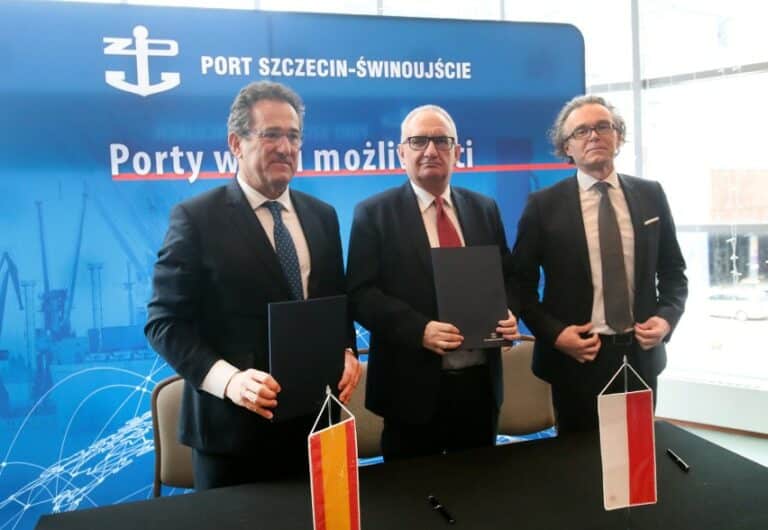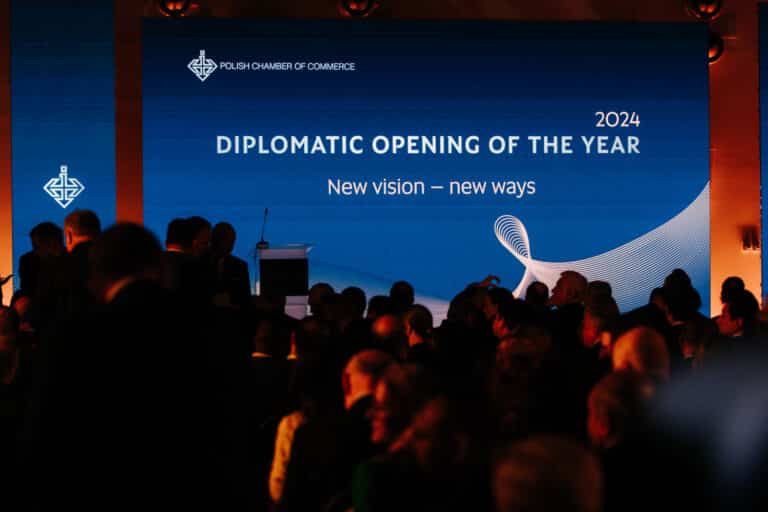Attracting foreign students to Poland
Following the progress in the number of foreign students in Poland, Collegium Civitas’ Vice-Rector for International Relations Katarzyna Maniszewska spoke with Erol Dzhelik from Poland Weekly.
Are Polish universities active in attracting foreign students?
Yes, they are. Not all of them of course, but there is a growing interest in internationalization among Polish Higher Education Institutions (HEIs). More and more programs of study are offered in English, the competencies of the faculty and staff are increasing (I don’t mean language competencies only, the multicultural communication is the key), the information materials are offered in different language versions, libraries have more resources in English, welcome points that help in adaptation of international students are being developed etc. This process is university-driven but is also supported by non-governmental initiatives such as the alliance “Study in Poland”, governmental institutions, foremostly National Agency for Academic Exchange, Polish embassies and last, but definitely not least – by the National Agency for the Erasmus+ program. Erasmus+ program is one of the pillars of internationalization of European universities.
What initiatives help them to attract foreign students?
Apart from the already mentioned institutions I think that the best way to attract foreign students is to… provide high quality education combined with a friendly but also empowering atmosphere at the university, so that students know that their voice matters. I hope that the university I work at, that is Collegium Civitas in Warsaw is a good example to illustrate that. We have several hundred international students from approx. 70 countries, plus each semester exchange students.
Do you hold any marketing activities outside of Poland to attract foreign students?
We do participate in events held by our international partners, such as study abroad fairs. During covid-19 pandemic these activities were severely limited and transferred to online, which for educational and promotion events was not always really effective. But we are back, and for example my colleagues from the International Office at Collegium Civitas plan for the upcoming academic year participation in marketing or promotional events in Europe, Central Asia, South East-Asia and the USA (we run a summer school program for American students devoted to security issues). However, the participation in marketing activities on-site abroad is at our university not extensive as they are time and cost consuming. Thus, we try to selected those events which can give some added value, e.g. combining new partnerships with foreign universities or guest lectures with the presence at marketing events.
We are of course conducting marketing activities online, but truth be told it is at times challenging, especially when it comes to the selection of potential target groups (given that we would like to increase not only the number of international students but also the countries they are from). That being said, I think at Collegium Civitas we are doing pretty well, in the last four years we managed to double not only the number of international students but also went from about 40 countries to over 70.
What attracts foreign students to Poland?
Polish Higher Education Institutions combine high quality of teaching with a relatively low price, not only of tuition fee but also of living costs – especially when compared with other European countries. In addition, it is a safe country, in terms of criminality or terrorism – one of the safest in the world. It is a country with fascinating culture, interesting, though tragic history, modern cities with good infrastructure, beautiful landscapes, friendly people.
There are currently about 100,000 international students at Polish universities, even the pandemic and limited mobility didn’t stop the growth in internationalization – I think it is a clear sign that Poland is an attractive place to study.
Which faculties in your university are open for foreign students?
At Collegium Civitas we offer programs (masters and bachelors) in four main disciplines: International Relations, Sociology, Management, Journalism and New Media (the latter bachelor studies only). In every discipline we offer study programs in English, so for example in International Relations we run International Security Studies – a state of the art program under the auspices of the Terrorism Research Center, in Sociology for instance Social Media Management and Digital Commerce, in Management – Project and Process Management and Data Analytics, Big Data and Coding. In total there are over 20 programs fully conducted in English at Collegium Civitas.
Does the presence of foreign students add value to universities in Poland?
Of course! The international environment gives students not only the unique networking opportunities, but also enhances the learning process. Personally I am proud that more and more students from all over the world are joining our academic community in Poland.
What could Poland do better to attract foreign students?
In my opinion, Polish universities need more support, including financial assistance, and coordination of activities promoting Polish higher education abroad. We must remember that global competition is huge, every country would like to cut out as much as possible from the ‘internationalization’ pie, because it is in its strategic interest. A good example is Australia and the government’s approach to the internationalization of education. Internationalization contributed $19 billion to the Australian economy in 2015, and by 2019, that figure had nearly doubled to $40.3 billion. Education is (or rather was – before the pandemic) one of the main ‘export goods’ of the country.
In addition, every Polish Higher Education Institution operating in international markets is somewhat of an ambassador of the Poland and the Polish education system abroad. We, representatives of universities, need to work with this idea in mind, remembering that we compete with more than 190 countries of the world rather than with each other. We are on the same team, so the key word is: cooperation.
How can Polish economy and labor market benefit on that?
The internationalization of education is a win-win. It brings very specific and measurable benefits – not only in the personal dimension for students and faculty but also for the entire economy – its innovation and competitiveness, and translates directly into economic growth. This is a global trend. Let me just say that according to the U.S. Department of Commerce international students contributed $45 billion to the U.S. economy in 2018! It is a very competitive field, but Poland has a good standing and numerous competitive advantages – we should further increase the efforts in internationalization of education.







